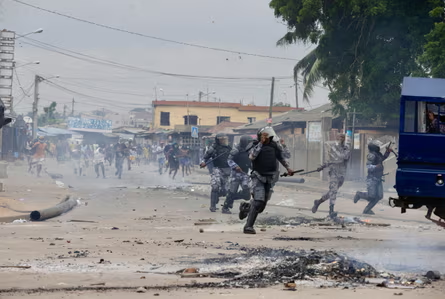
Togo is bracing for a new wave of demonstrations on July 16 and 17 amid escalating tensions between the government and the June 6 Movement (M6.6), a coalition of activists, artists, and bloggers demanding political reform.
The government has issued arrest warrants against prominent members of M6.6, particularly those based abroad, accusing them of orchestrating campaigns to incite unrest among Togolese youth.
In an official statement, the authorities charged these figures with “inciting civil disobedience,” “spreading false information,” and “undermining state security.”
The government condemned what it called a “strategy of manipulation orchestrated from outside,” aimed at destabilizing Togo through social media—the main tool used by the movement for mobilization.
“The State will take all necessary measures to ensure public order and protect republican institutions,” declared the Minister of Security, emphasizing that security forces would be reinforced during the upcoming days of protest.
Recent demonstrations have been met with force, resulting in a reported five deaths according to government sources, though human rights groups suggest dozens have been injured.
The rising death toll has led opposition parties and citizen groups to call for days of prayer and remembrance starting July 11, alongside a four-day national mourning period.
Despite legal crackdowns and heightened security, M6.6 remains defiant. From exile, its leaders continue to urge Togolese citizens to mobilize against what they describe as an “authoritarian and closed-door” regime.
Their demands include the introduction of presidential term limits and the organization of free, transparent elections.
Political analysts suggest this latest wave of protests—characterized by decentralized leadership and strong diaspora involvement—could mark a significant turning point in Togo’s political landscape, which has long been tightly controlled by the ruling establishment.
As the country prepares for another round of demonstrations, the fragile balance between government authority and popular dissent appears increasingly precarious.



